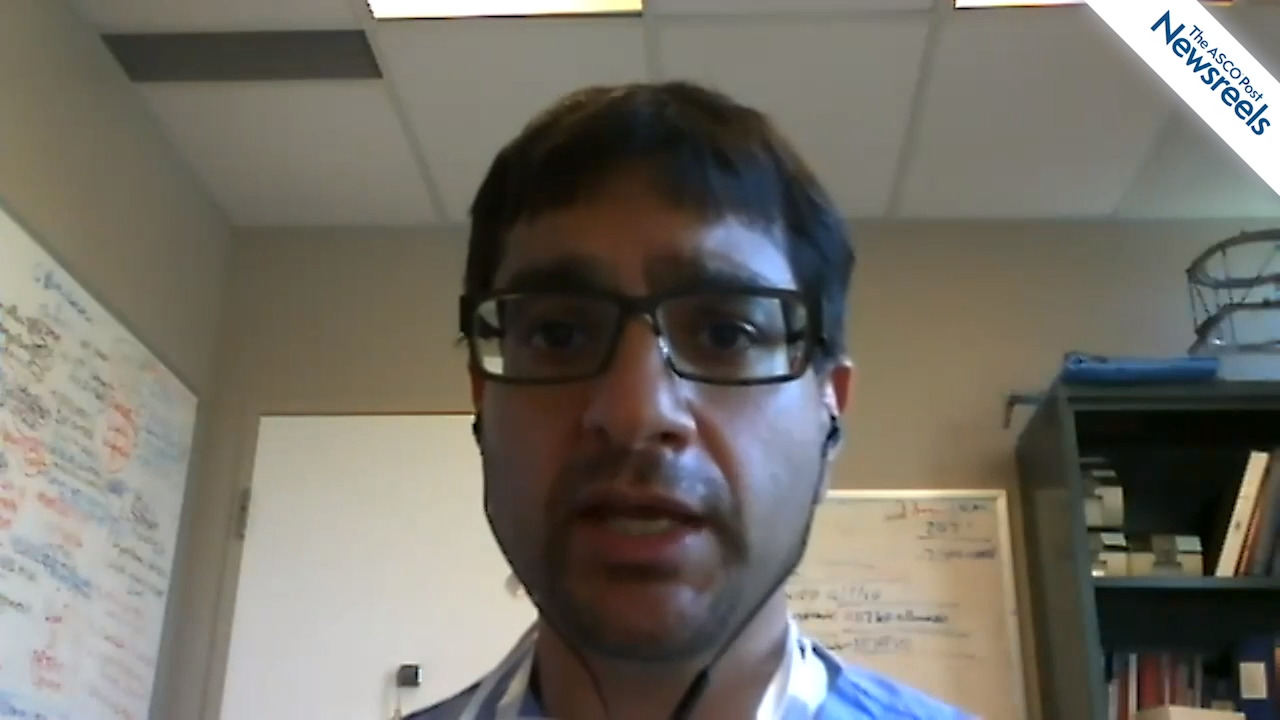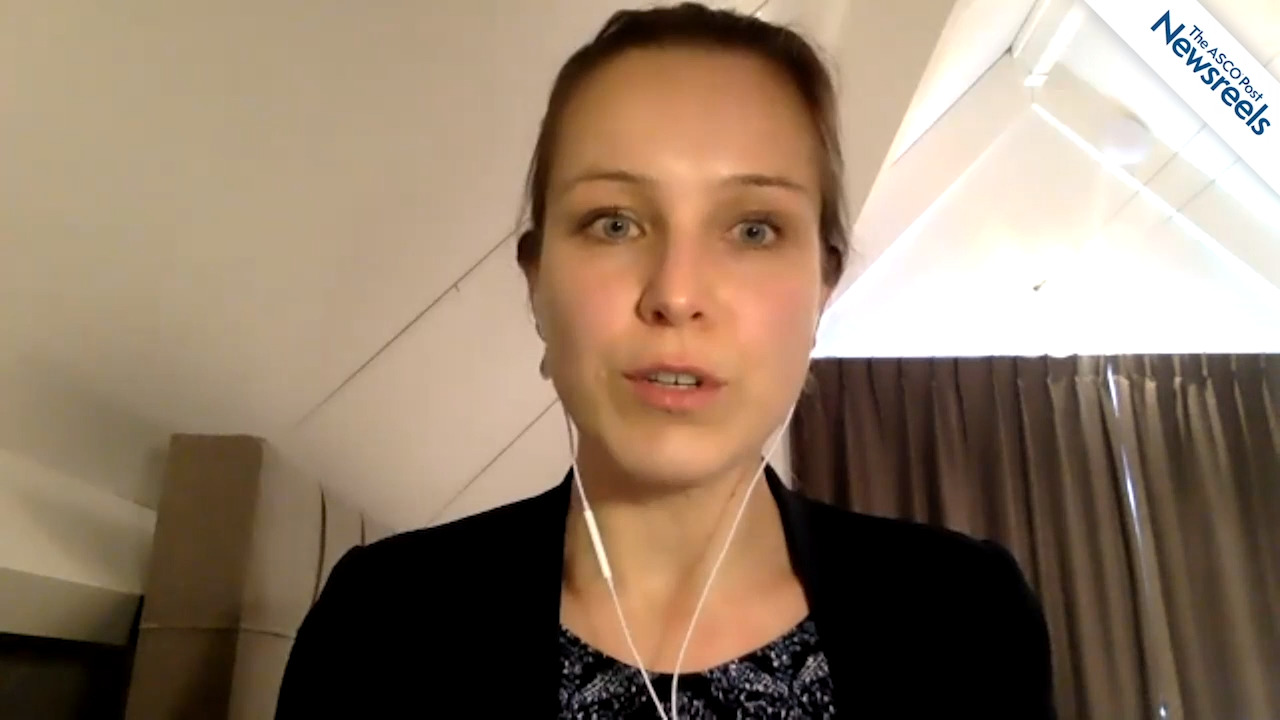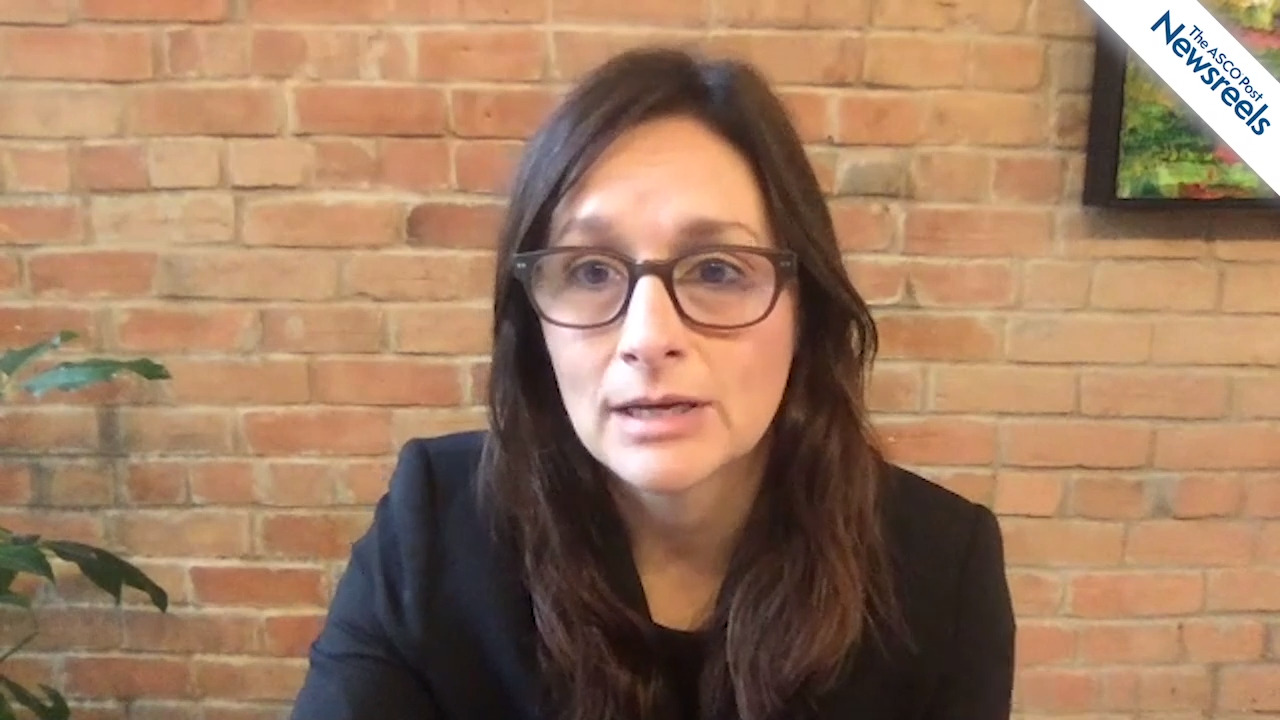Jing Li, MD, PhD, on Brain Metastases: Stereotactic Radiosurgery vs Whole-Brain Radiation Therapy
2020 ASTRO Annual Meeting
Jing Li, MD, PhD, of The University of Texas MD Anderson Cancer Center, discusses phase III results showing the use of stereotactic radiosurgery in patients with 4 to 15 brain metastases, compared with whole-brain radiotherapy, may better preserve cognitive function and minimize the interruption of systemic therapy without compromising overall survival (Abstract 41).
The ASCO Post Staff
Alphonse G. Taghian, MD, PhD, of Massachusetts General Hospital, reviews the 10-year follow-up of a dose-escalation trial studying accelerated partial-breast irradiation and discusses the optimal dose, adverse effects, and cosmetic outcomes (Abstract 25).
The ASCO Post Staff
Arjun Sahgal, MD, of the Sunnybrook Health Sciences Centre, discusses results of the first phase III trial to suggest that dose escalation with stereotactic body radiotherapy may be superior to conventional palliative radiotherapy in improving pain outcomes for patients with spinal bone metastases (Abstract LBA2).
The ASCO Post Staff
Linda G.W. Kerkmeijer, MD, PhD, of the University Medical Center Utrecht and Radboud University Medical Center, discusses results from the phase III FLAME trial, which explored the question of whether biochemical disease–free survival can be improved by adding a focal boost to the intraprostatic lesion in whole-gland external-beam radiotherapy for patients with intermediate- and high-risk prostate cancers (Abstract 126).
The ASCO Post Staff
Cynthia Menard, MD, of the University of Montreal, discusses a study on the use of prostate-specific membrane antigen PET and CT to guide treatment. The scans led to high rates of new lesion detection and therefore intensification of radiotherapy for patients with prostate cancer, without an increase in side effects (Abstract 34).
The ASCO Post Staff
Justin Oh, MD, of the University of British Columbia, discusses results from the ASCENDE-RT trial, which compared a low-dose–rate brachytherapy boost to a dose-escalated external-beam boost for patients with high- and intermediate-risk prostate cancers (Abstract 127).





